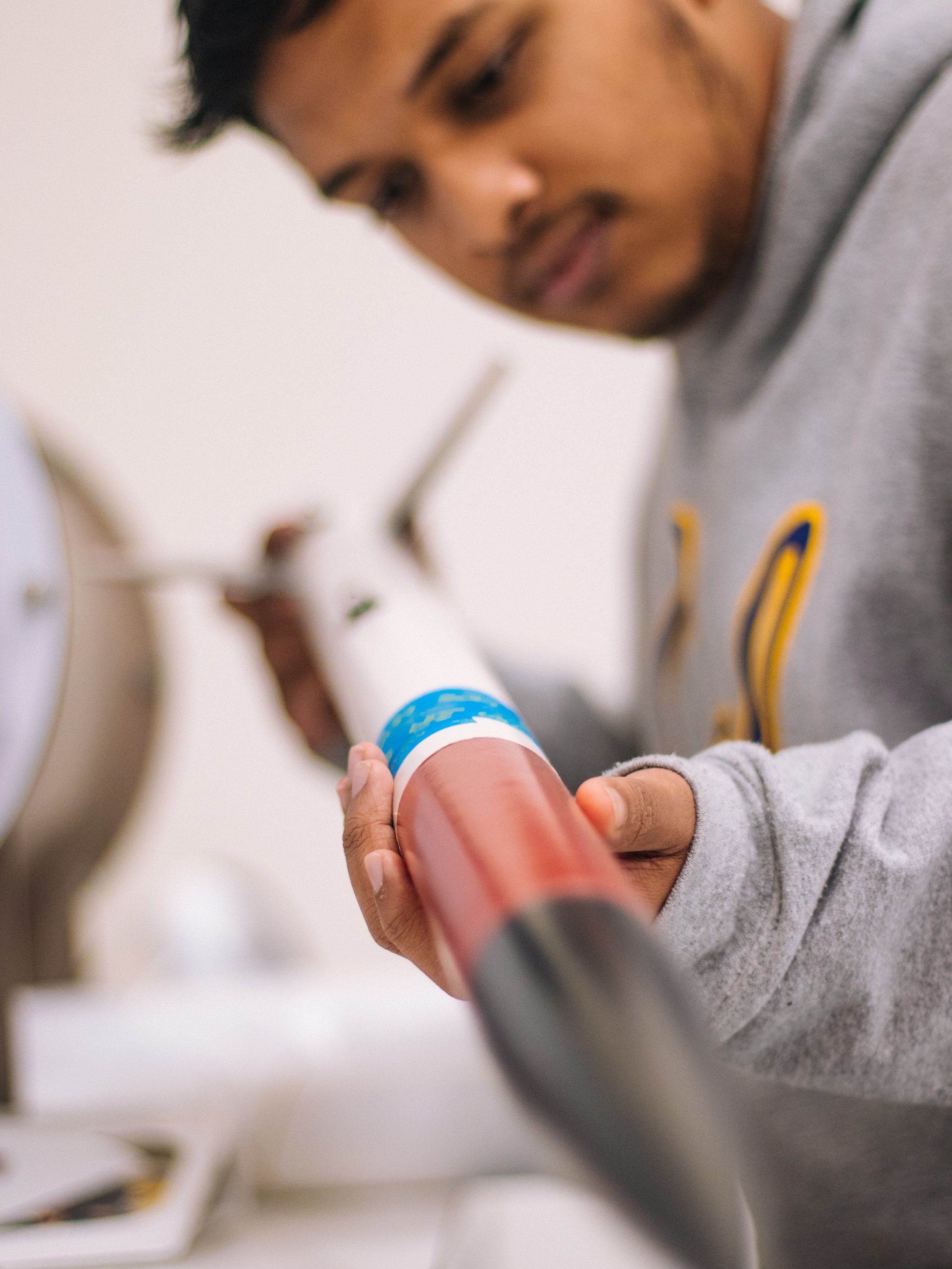9 Best Career Tips to Get Into the Space Sector
You're in luck if you want to make a name for yourself in the field of space exploration. The space field is a rapidly growing field with a wide range of possible career specializations. Here, in this article, you will learn how to increase your chances of getting a job in the space sector.
1. Leverage Volunteer Experience
Join or volunteer with space-related organizations such as SEDS. There is a lower barrier to entry than an internship or job, so volunteering, even as a student for space-related projects, will provide essential work experience.
(Ask us how you can volunteer for Space United!)
2. Connect with Others
Next up is to connect with others! This is absolutely essential because it not only allows you to learn from each other - you may also get a job from it.
Recent statistics have shown that 80% of jobs come from personal or professional connections. You can connect with others on Space United’s growing Discord server right here.
For the next career tip to get into the space sector, let’s dive into exactly how to break into the space sector.
3. Apply for Scholarships & Grants
You can jumpstart your career in the space sector by applying to as many grants and scholarships as you can. They provide you with money that you do not have to pay back - and that you can use towards your career on things like education and personal projects.
A grant program we would recommend is the NASA Space Grant Project.
4. Apply for Fellowships
Michael Adeyi, a product engineer at Relativity Space and Space United Los Angeles player, highly recommends applying for fellowships. He received the Matthew Isakowitz Fellowship in 2021, which was a large factor in his career.
The Isakowitz Fellowship, Patti Grace Smith Fellowship, Brooke Owens Fellowship, and Zed Factor Fellowships are fellowships that we recommend applying for. Next, let’s learn how to increase your chance of getting into a good college.
5. Join Competitions
Getting into a good college will positively impact your future career. One way to do that is to participate in competitions.
These competitions (often have a prize!) will teach you valuable hands-on lessons, and win or lose it would look amazing on a college application or even a job resume. We recommend NASA JPL Contests for Students.
6. Take More STEM Courses
Participate in STEM classes and get your hands on as many STEM books as you can. A strong foundation in STEM is extremely useful when it comes to working in the space sector. Look into space-related courses at your school and maximize those. There’s even free STEM courses, like this Intro to Aerospace Engineering taught by former NASA Astronaut Jeffrey Hoffman.
This brings us right into our next point: Learn until you become an expert in your field.
7. Become an Expert in Your Field
Just taking your school’s courses doesn’t cut it in the space sector. Find the field in space that interests you the most and look into space-related degrees, certificate programs, and other space curriculums.
There are a variety of different platforms you can use to become an expert in your field. A few helpful resources are edX, Coursera, Blue Origin’s Club for the Future, and Rocket Lab USA.
8. Be Determined to Get into Space
You will need to recognize the space sector is competitive, and you will need to work harder than most people to achieve your desired career. You will likely face challenging setbacks along the way, but persistency and learning from those experiences is what paves the way to the next opportunity.
9. Love Space and the Journey
Developing a strong passion for your career is important so you don’t burn out. At the end of the day, if you don’t have a good reason to go to work every day, it won’t be a pleasant experience.
Final Thoughts
We hope you found some of these career tips helpful and practical. Now, it's time to take the first steps.
Join our Discord server to discuss and get delve into the resources in space, STEM, college, and soccer. Keep on learning with the vast array of online resources, volunteer, apply for fellowships and grants, and most importantly, get up when you fail and keep trying.




